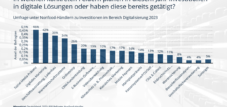Private Chatgpt use versus company-owned AI solutions: Legal risks and strategic alternatives
Xpert pre-release
Language selection 📢
Published on: May 30, 2025 / update from: May 30, 2025 - Author: Konrad Wolfenstein

Private chatt use versus company-owned AI solutions: Legal risks and strategic alternatives-Image: Xpert.digital
Chatgpt at the workplace: between innovation and legal risks
AI tools in the office: opportunities and challenges for companies
The temptation is great: Chatgpt promises quick support in daily work, from email formulation to text position. While many employees secretly use the AI tool, companies are faced with the strategic decision between ban, toleration or their own AI implementations. The present analysis shows that the private use of Chatgpt in the workplace carries considerable legal and safety risks, while company-owned AI solutions can use both the workforce of the workforce and ensure data protection and compliance.
Legal pitfalls of private chatt use
Labor law restrictions and instructions
The use of chatt via private accounts in the workplace moves in a legal gray area. The Hamburg Labor Court decided in 2024 that the private use of AI tools is generally not subject to operational participation, as long as the employer has no access to the data. However, this does not mean that employers have to tolerate the use without restriction. As part of your instructions, you can certainly prohibit the use of Chatgpt at the workplace.
The basic labor law problem lies in the personally personal obligation to work. According to § 613 S.1 BGB, services must be provided “in person in person”. While aids are definitely allowed, employees must not shift their work entirely to third parties-or in this case to AI systems. In any case, it is inadmissible if employees have their work done entirely and without the employer's knowledge. The permissible scope of AI use depends heavily on the specifically owed work performance.
Data protection challenges
The GDPR conformity in chatt use presents companies with considerable challenges. The Bavarian State Commissioner for Data Protection made it clear in 2025 that the area of application of the GDPR has already been opened if only the training data have personal reference. This means that practically every use of Large Language models such as Chatgpt must observe data protection requirements.
The lack of transparency of the AI algorithms is particularly problematic. Chatgpt is considered a “blackbox” with regard to data protection, which means that companies cannot provide detailed information about data processing. Effective consent in accordance with Art. 6 Para. 1 GDPR is therefore almost impossible. In addition, companies cannot meet their information obligations from Art. 13 and 14 GDPR, since they cannot provide sufficient information about the scope, legal basis and recipient of data processing.
Copyright and liability risks
The uncontrolled use of Chatgpt carries considerable copyright risks. The AI tool generates texts based on training data that can contain copyright-protected works. This can lead to unconscious copyright infringement if generated texts are similar or have been adopted. Companies can be liable for such violations of their employees, which can lead to costly legal disputes.
Another risk is the lack of responsibility for AI generated content. If Chatgpt provides incorrect information and this is used unchecked, relevant consequences can arise. This applies in particular to subject -specific areas where false information can lead to business or even legal problems.
Security risks and data losses
Unintentional data leaks and training use
The private use of chatt for professional purposes harbors considerable security risks. Employees often indignantly enter the system, who may be shared with other users. Openai traditionally uses chat courses for training new models, which means that entered information can theoretically be called up by other users.
Documented incidents show the reality of these risks: At Amazon and Samsung, corporate secrets in Openai's knowledge database appeared after employees accidentally shared them via chatt. Direct data breakdowns at Chatgpt also meant that users could view entries from news courses from other users.
Shadow IT and loss of control
Surveys show that up to 80 percent of the employees use so-called shadow-IT-software or hardware in the company network without permission or knowledge of the IT department. This uncontrolled use leads to a complete loss of control via sensitive company data. In addition, cybercriminals can penetrate employee accounts through phishing attacks or credential stuffing and access foreign data.
The use of private accounts makes it practically impossible for companies to enforce security guidelines or understand data leaks. Without adequate control and training, organizations are exposed to significant liability risks.
Strategic advantages of company-owned AI solutions
Efficiency increase and automation
Career AI implementations offer considerable advantages over uncontrolled private use. AI systems can do repetitive tasks faster and more precisely than people, which means that employees can use their time for more demanding and strategic tasks. By automating work processes, companies can increase their efficiency and reduce costs.
There are significant improvements in customer service in particular: AI-based chatbots can answer frequently asked questions and process customer inquiries, which can demonstrably increase customer satisfaction by up to 20 percent. In addition, AI enables improved decision -making by analyzing large amounts of data and the detection of patterns that would be difficult to recognize for human analysts.
Personalization and competitive advantages
Career AI solutions make it possible to create personalized and tailor-made offers for customers. By analyzing customer data, companies can better understand needs and preferences and develop individual recommendations. This personalization leads to stronger customer loyalty and long -term competitive advantages.
Companies that successfully integrate AI into their business operations can clearly stand out from the competition. AI is not a temporary technology, but will shape the future of entrepreneurship sustainably. About 15 percent of German companies have already gained concrete experiences with AI implementations and found positive effects.
🎯📊 Integration of an independent and cross-data source-wide AI platform 🤖🌐 for all company matters

Integration of an independent and cross-data source-wide AI platform for all company matters-Image: Xpert.digital
Ki-Gamechanger: The most flexible AI platform-tailor-made solutions that reduce costs, improve their decisions and increase efficiency
Independent AI platform: Integrates all relevant company data sources
- This AI platform interacts with all specific data sources
- From SAP, Microsoft, Jira, Confluence, Salesforce, Zoom, Dropbox and many other data management systems
- Fast AI integration: tailor-made AI solutions for companies in hours or days instead of months
- Flexible infrastructure: cloud-based or hosting in your own data center (Germany, Europe, free choice of location)
- Highest data security: Use in law firms is the safe evidence
- Use across a wide variety of company data sources
- Choice of your own or various AI models (DE, EU, USA, CN)
Challenges that our AI platform solves
- A lack of accuracy of conventional AI solutions
- Data protection and secure management of sensitive data
- High costs and complexity of individual AI development
- Lack of qualified AI
- Integration of AI into existing IT systems
More about it here:
On-premise ki: why control and security make the difference
Technical implementation options
On-premise AI solutions for maximum control
On-premise AI solutions offer companies complete control over their data and AI systems. These local implementations ensure that sensitive information does not get into external clouds and make it possible to determine safety precautions according to their own standards. This enables companies to offer customers a higher level of trust and at the same time fully comply with data protection regulations.
The advantages of on-premise solutions include faster innovation cycles, since companies have full control over development and implementation. Tailor -made solutions can be tailored to individual business processes, which is not possible with external services. Tools like onprem.llm enable Large Language Models to operate completely locally and at the same time use cloud integrations if necessary.
Retrieval Augmented Generation (RAG) for company-specific applications
RAG systems combine information retrieval with Large Language Models and enable AI systems to access specific company data instead of only being dependent on training data. This significantly increases the accuracy and robustness of the generated content and makes it suitable for business -critical applications.
The RAG process consists of four essential stages: data indexing, data calls, augmentation and response generation. Company data is converted into words of words and indexed into vectord databases, which means that both structured and unstructured data can be used effectively. This technology enables chatbots to access internal company data and generate reliable, source -based answers.
Enterprise solutions and hybrid approaches
Chatgpt Enterprise and similar corporate solutions offer extended security features, unlimited high-speed access and customizable functions. These platforms ensure that customer data is not used for the training of Openai models and offer encryption both in the idle state and the transmission.
For smaller organizations, hybrid approaches can be useful, in which local AI models are provided with tools such as Vllm, Openllm or Ollama via residual APIs. These solutions make it possible to use the advantages of enterprise AI without having to carry the high costs of complete on-premise implementations.
Employee integration and change management
Promote organic AI adoption
The successful implementation of corporate AI requires a well thought-out change management strategy. Employees already use AI software in all industries and regions, since the entry hurdles are low and the advantages can quickly become recognizable. Instead of fighting this organic adoption, they should promote companies in a targeted manner and at the same time reduce negative effects.
The key is the integration of employees to understand how and why they want to use AI. Formalized approaches can maximize companies while creating guidelines for safe introduction. This requires clear boundaries and rules that ensure that generative AI has an effect without hindering wider strategic efforts.
Training and qualification
If AI lies in the hands of trained and qualified employees, it does not replace human ingenuity, but reduces effort and time in generative processes. Data analysis, code creation and content maintenance can be tightened by AI by automatically accessing different data sources in order to optimize and scale repeatable tasks.
Successful AI implementations require that employees are integrated into the transformation process at an early stage. You must have the opportunity to actively contribute with your experiences and concerns. Questions like "Where can I be relieved as an employee?" and "where is the AI use meaningful and effective?" should be answered together.
Compliance and governance frameworks
Data protection-compliant implementation
For GDPR-compliant AI implementations, companies must act as those responsible within the meaning of the General Data Protection Regulation. This means that you have to keep complete control over data processing and ensure that all data protection requirements are met. When using third-party AI from non-EU countries, additional precautions for international data transfers are required.
An essential building block is the conclusion of order processing contracts (AVV) with AI providers. These contracts are always necessary if personal data is processed by instructions -related service providers. Companies must also ensure that they can meet their information obligations in accordance with Art. 13 and 14 GDPR.
Risk management and security architecture
Sales-owned AI solutions make it possible to implement comprehensive risk management strategies. AI can help recognize potential risks at an early stage and identify security gaps. Through the controlled use, companies can improve their security measures and protect data from potential threats.
The security architecture should be built in multi-layered, with clear access controls, encryption and monitoring systems. On-premise solutions offer maximum control, while cloud-based enterprise solutions often represent a good compromise between security and functionality.
AI at the workplace: This is how companies avoid legal and data protection traps
The secret private use of chatt at work may seem productive at short notice, but harbors considerable legal, safety and economic risks for companies. From labor law violations to GDPR violations to unintentional data leaks-the disadvantages clearly outweigh the supposed advantages of “invisible” use.
Instead, companies should strategically use the innovation motivation of their employees and invest in controlled, company-owned AI solutions. On-premise implementations, RAG systems and enterprise solutions not only offer the highest security standards, but also enable tailor-made applications to create real competitive advantages. Through early employees and structured change management, organizations can use the advantages of the AI revolution without endangering compliance or data protection.
We are there for you - advice - planning - implementation - project management
☑️ SME support in strategy, consulting, planning and implementation
☑️ Creation or realignment of the AI strategy
☑️ Pioneer Business Development
I would be happy to serve as your personal advisor.
You can contact me by filling out the contact form below or simply call me on +49 89 89 674 804 (Munich) .
I'm looking forward to our joint project.
Xpert.Digital - Konrad Wolfenstein
Xpert.Digital is a hub for industry with a focus on digitalization, mechanical engineering, logistics/intralogistics and photovoltaics.
With our 360° business development solution, we support well-known companies from new business to after sales.
Market intelligence, smarketing, marketing automation, content development, PR, mail campaigns, personalized social media and lead nurturing are part of our digital tools.
You can find out more at: www.xpert.digital - www.xpert.solar - www.xpert.plus
























